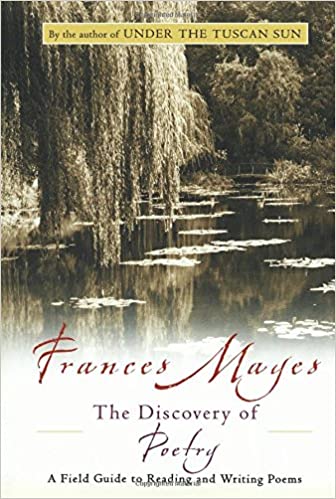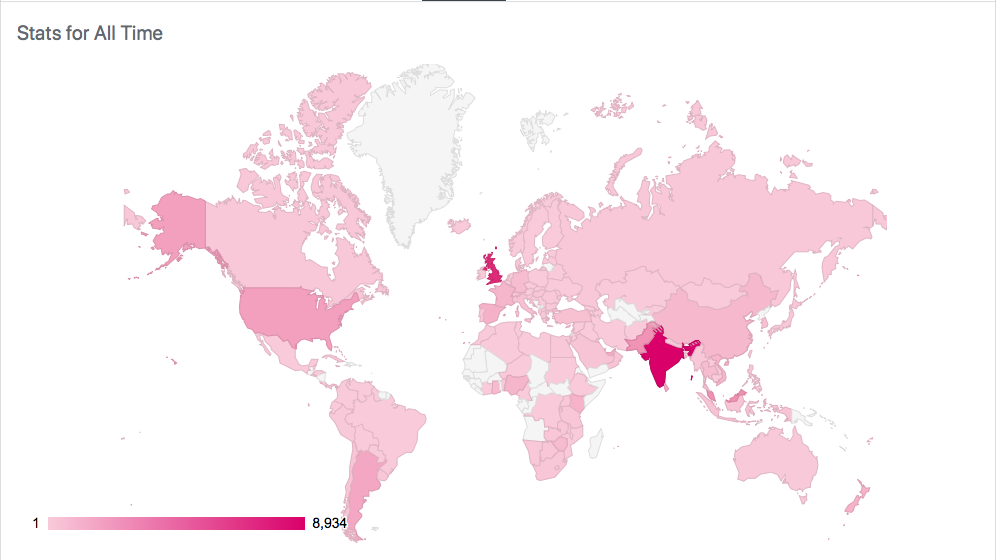

Hi! I’m Doug and this is Alicia. Between us, we made Poetry Prof.
This site is for teachers and students who read, teach and study poetry in IGCSE English Literature and World Literature classes. Most of the poems we write about and illustrate come from the Songs of Ourselves Anthology (Volumes 1 and 2), compiled by Cambridge, featuring poets from all parts of the English speaking world. More, we hope that lovers of poetry and general readers might stumble across our work and both enjoy our discussions of poetry and appreciate the original illustrations inspired by the poems.
When I set out on this project, my aim was to write accessible content that, perhaps with a little help, can be understood and used by students in high schools. Poetry is lexically dense and approaching poetry, especially formal poems or poems written in an old fashioned register, can be a daunting experience for young people. But I’m also convinced that, over time, most students open up to the idea of studying poems, particularly if they are thematically rich. Over time, readers too become increasingly familiar with the poet’s craft, and here’s where a little help is often appreciated. I’m sure that every teacher of poetry is asked at one point or another whether a writer ‘has done that on purpose’ and, through making connections between form and content, I wanted to show those skeptical voices that, yes, writers really are so skilled! I also wanted to demonstrate that poetic interpretation isn’t ‘anything goes’; I hope that regular readers notice the same range of devices being employed again and again to create meanings and effects that can be decoded by patient students no matter how secretive the poems first appear to be.
Having taught several of these poems before, I was aware of the dearth of similar content outside of essay mills and subscription-only sites. I don’t want this to be that type of blog, and hope that my writing style is analytical enough to be useful but informal enough not to be plagiarised. If you are a student reading this, could I ask you not to cut and paste! Make brief notes with pen and paper (the old-fashioned way), then turn off the screen and write your ideas and essays in your own words. I promise that no matter how obscure the poems seem at first, with a little time and patience you’ll find your own way of expressing the thoughts and feelings hidden inside, and you’ll learn and grow as a result of your own efforts.

My own reading touchstones have been indispensable and I recommend the following books to anyone who wants to delve deeper into the craft of reading (or writing) poetry: The Discovery of Poetry by Frances Mayes; The Ode Less Travelled by Stephen Fry; The Making of a Poem by Mark Strand and Eavan Boland. Carol Rumens’ regular poetry column and Ruth Padel’s incisive explanations were my style guides, and I wanted Poetry Prof to become a kind of Padel-lite for high school students (although I have a long way to go before I can even approach the depth and concision with which she, seemingly effortlessly, unlocks poetry’s stubbornest secrets).
Although we provide lots of additional resources at a small charge, we want to keep the blog open and free for everyone to enjoy. If you do have the means, and especially if you use this site in a classroom or virtual learning environment, you could support our work by downloading the supporting materials from time to time. Each Study Bundle contains: an interactive powerpoint with line-by-line annotations of a range of poetic and linguistic devices (it’s editable, so you can add your own analysis points and delete those you don’t find relevant); an activity booklet that’s great for self-study, pre-reading or revision; a crossword quiz that could be used as a fun activity or for recap; a series of study questions to practice writing analytical paragraphs (if you answer all six questions and delete the numbers, you’ll find you have written a whole essay); a style guide for analytical writing in the form of a sample point-evidence-explanation paragraph; a choice of essay questions to help prepare for those end-of-year examinations, with one completed essay plan for students to follow; a focused worksheet that goes into detail about one important poetic technique. Over time, students can transfer their expertise from poem to poem and start noticing more and more instances where the same techniques are employed to create effects across an entire collection. I think our work represents the highest quality of materials available to structure and support a rigorous learning experience.

Finally, thank you for reading and sharing your thoughts about the breakdowns on Poetry Prof. Please follow us on social media and share the blogs around. When we started this project we had no idea what it might grow into or whether anybody would even be interested. The response has been incredible and it makes me happy to know that our work has helped so many people understand some brilliant poems, prepare for exams, enlivened the first reading of a poem with an original image, saved a busy teacher’s precious time, or just passed a few moments to read on a rainy day.